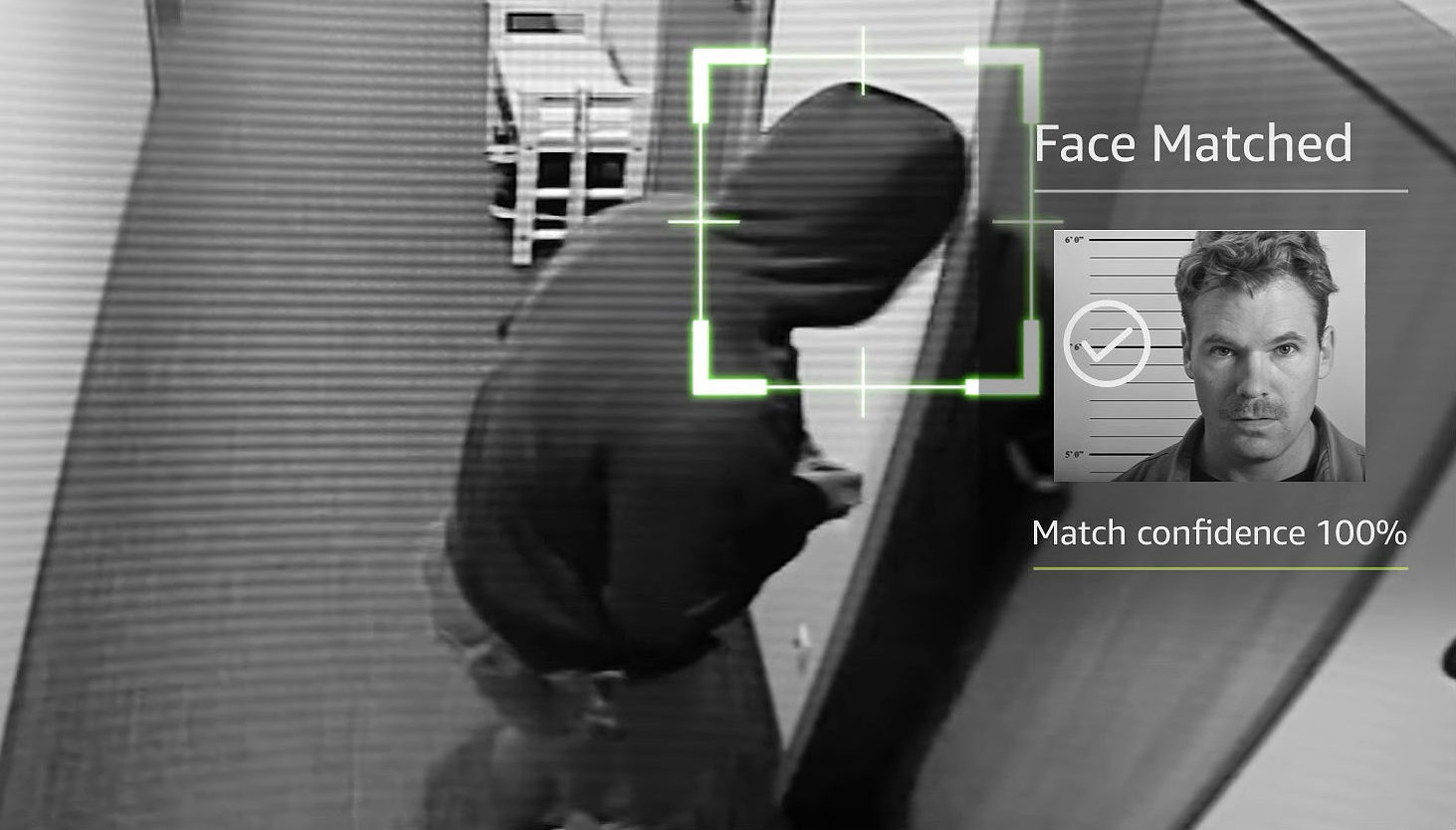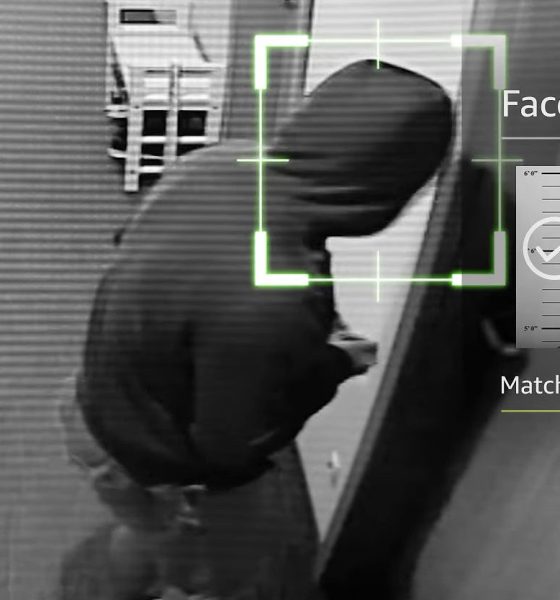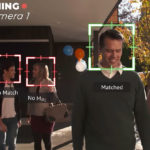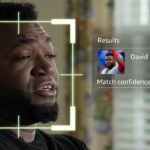

News
Amazon employees demand stoppage of facial recognition contract with law enforcement
Amazon workers have penned a letter to Jeff Bezos calling on the CEO to immediately cancel the access of law enforcement agencies to its Rekognition facial recognition system. The employees’ letter comes on the heels of several Amazon shareholders who have also asked the e-commerce giant to stop selling Rekognition to the police.
As could be seen in the letter to the CEO, Amazon’s employees stated that they do not agree to have their work used for purposes that could target marginalized groups. The letter also cited the United States government’s practice of separating children away from their parents at the border as a key reason why Amazon should cancel its contract with law enforcement agencies. Amazon workers further called for the removal of Palantir, a data-mining company, from the client list of Amazon Web Services (AWS). Palantir, a company founded by Peter Thiel, currently has a contract with ICE and is actively involved in the agency’s deportation and detention programs.
Rekognition is, at its core, an API for deep learning-based analysis to detect, track, and analyze people and objects in videos. In Amazon’s advertisement for the service on YouTube, the company could be seen promoting Rekognition’s facial tracking capabilities such as smart home monitoring, celebrity detection in videos, and more serious applications such as the recognition and tracking of persons of interest. An investigation conducted by the American Civil Liberties Union earlier this year determined that Amazon actively marketed Rekognition to law enforcement officials, citing the software’s advanced face tracking capabilities.
- A demonstration of the capabilities of Amazon Rekognition. [Credit: Amazon Cloud Services/YouTube]
- A demonstration of the capabilities of Amazon Rekognition. [Credit: Amazon Cloud Services/YouTube]
The Amazon employees’ initiative against the company’s ties to law enforcement comes on the heels of similar protests in Microsoft and Google. Earlier this year, Google was beset by a brief exodus of workers and employee protests after it was revealed that the company had aided the Pentagon in its AI-driven Project Maven initiative, which uses artificial intelligence to effectively analyze footage from military drones. While Google stated that the work it has done with the Pentagon was mundane, the company ultimately opted not to renew its Project Maven contract, while also announcing new ethics principles to govern its artificial intelligence work.
Microsoft also found itself in hot water last May after it was revealed that the company has a $19.4 million contract with the United States’ Immigration and Customs Enforcement (ICE). In a letter addressed to CEO Satya Nadella, Microsoft employees stated that they “refuse to be complicit” in ICE’s practice of marginalizing select ethnic groups and actively separating families. In a response to its employees’ protests, Microsoft noted that the company only provides non-surveillance services such as mail, calendar, messaging and document management to the government agency.
The Amazon workers’ full letter to Jeff Bezos could be read in full below.
Dear Jeff,
We are troubled by the recent report from the ACLU exposing our company’s practice of selling AWS Rekognition, a powerful facial recognition technology, to police departments and government agencies. We don’t have to wait to find out how these technologies will be used. We already know that in the midst of historic militarization of police, renewed targeting of Black activists, and the growth of a federal deportation force currently engaged in human rights abuses — this will be another powerful tool for the surveillance state, and ultimately serve to harm the most marginalized. We are not alone in this view: over 40 civil rights organizations signed an open letter in opposition to the governmental use of facial recognition, while over 150,000 individuals signed another petition delivered by the ACLU.
We also know that Palantir runs on AWS. And we know that ICE relies on Palantir to power its detention and deportation programs. Along with much of the world we watched in horror recently as U.S. authorities tore children away from their parents. Since April 19, 2018 the Department of Homeland Security has sent nearly 2,000 children to mass detention centers. This treatment goes against U.N. Refugee Agency guidelines that say children have the right to remain united with their parents, and that asylum-seekers have a legal right to claim asylum. In the face of this immoral U.S. policy, and the U.S.’s increasingly inhumane treatment of refugees and immigrants beyond this specific policy, we are deeply concerned that Amazon is implicated, providing infrastructure and services that enable ICE and DHS.
Technology like ours is playing an increasingly critical role across many sectors of society. What is clear to us is that our development and sales practices have yet to acknowledge the obligation that comes with this. Focusing solely on shareholder value is a race to the bottom, and one that we will not participate in.
We refuse to build the platform that powers ICE, and we refuse to contribute to tools that violate human rights.
As ethically concerned Amazonians, we demand a choice in what we build, and a say in how it is used. We learn from history, and we understand how IBM’s systems were employed in the 1940s to help Hitler. IBM did not take responsibility then, and by the time their role was understood, it was too late. We will not let that happen again. The time to act is now.
We call on you to:
- Stop selling facial recognition services to law enforcement
- Stop providing infrastructure to Palantir and any other Amazon partners who enable ICE.
- Implement strong transparency and accountability measures, that include enumerating which law enforcement agencies and companies supporting law enforcement agencies are using Amazon services, and how.
Our company should not be in the surveillance business; we should not be in the policing business; we should not be in the business of supporting those who monitor and oppress marginalized populations.
Sincerely,
Amazonians
Here’s Amazon’s advertisement for Rekognition.
https://www.youtube.com/watch?v=SNONL4IecHE

News
Tesla ships out update that brings massive change to two big features
“This change only updates the name of certain features and text in your vehicle,” the company wrote in Release Notes for the update, “and does not change the way your features behave.”

Tesla has shipped out an update for its vehicles that was caused specifically by a California lawsuit that threatened the company’s ability to sell cars because of how it named its driver assistance suite.
Tesla shipped out Software Update 2026.2.9 starting last week; we received it already, and it only brings a few minor changes, mostly related to how things are referenced.
“This change only updates the name of certain features and text in your vehicle,” the company wrote in Release Notes for the update, “and does not change the way your features behave.”
The following changes came to Tesla vehicles in the update:
- Navigate on Autopilot has now been renamed to Navigate on Autosteer
- FSD Computer has been renamed to AI Computer
Tesla faced a 30-day sales suspension in California after the state’s Department of Motor Vehicles stated the company had to come into compliance regarding the marketing of its automated driving features.
The agency confirmed on February 18 that it had taken a “corrective action” to resolve the issue. That corrective action was renaming certain parts of its ADAS.
Tesla discontinued its standalone Autopilot offering in January and ramped up the marketing of Full Self-Driving Supervised. Tesla had said on X that the issue with naming “was a ‘consumer protection’ order about the use of the term ‘Autopilot’ in a case where not one single customer came forward to say there’s a problem.”
This was a “consumer protection” order about the use of the term “Autopilot” in a case where not one single customer came forward to say there’s a problem.
Sales in California will continue uninterrupted.
— Tesla North America (@tesla_na) December 17, 2025
It is now compliant with the wishes of the California DMV, and we’re all dealing with it now.
This was the first primary dispute over the terminology of Full Self-Driving, but it has undergone some scrutiny at the federal level, as some government officials have claimed the suite has “deceptive” names. Previous Transportation Secretary Pete Buttigieg was one of those federal-level employees who had an issue with the names “Autopilot” and “Full Self-Driving.”
Tesla sued the California DMV over the ruling last week.
News
Tesla workers push back against Giga Berlin unionization
“IG Metall did not succeed in Giga Berlin‘s works council election earlier today. The union share was reduced from nearly 40% in 2024 to 31% in 2026! This is a clear message by the Giga Berlin team towards an independent co-determination! The list called Giga United, led by the current chairwoman, Michaela Schmitz, received the most votes with more than 40%! Good news for Giga Berlin!”

Tesla workers pushed back against unionization efforts at Gigafactory Berlin, and over the past few years, there has been a dramatic decrease in interest to unionize at the German plant.
Gigafactory Berlin Plant Manager André Thierig announced on Wednesday that IG Metall, the European union group, saw its share reduce from 40 to 31 percent in 2026 as employees eligible to vote on the issue. Instead, the Giga Berlin team, known as Giga United, received the most votes with more than 40 percent.
BREAKING! 🚨
IG Metall did not succeed in Giga Berlin‘s works council election earlier today. The union share was reduced from nearly 40% in 2024 to 31% in 2026!
This is a clear message by theGiga Berlin team towards an independent co-determination!
The list called Giga…
— André Thierig (@AndrThie) March 4, 2026
Thierig gave specific details in a post on X:
“IG Metall did not succeed in Giga Berlin‘s works council election earlier today. The union share was reduced from nearly 40% in 2024 to 31% in 2026! This is a clear message by the Giga Berlin team towards an independent co-determination! The list called Giga United, led by the current chairwoman, Michaela Schmitz, received the most votes with more than 40%! Good news for Giga Berlin!”
There were over 10,700 total employees who were eligible to vote, with 87 percent of them turning out to cast what they wanted. There were three key outcomes: Giga United, IG Metall, and other notable groups, with the most popular being the Polish Initiative.
The 37-seat council remains dominated by non-unionized representatives, preserving Giga Berlin as Germany’s only major auto plant without a collective bargaining agreement.
Thierig and Tesla framed the outcome as employee support for an “independent, flexible, and unbureaucratic” future, enabling acceleration on projects like potential expansions or new models. IG Metall expressed disappointment, accusing management of intimidation tactics and an “unfair” campaign.
The first election of this nature happened back in 2022. In 2024, IG Metall emerged as the largest single faction with 39.4 percent, but non-union lists coalesced for a majority.
But this year was different. There was some extra tension at Giga Berlin this year, as just two weeks ago, an IG Metall rep was accused by Tesla of secretly recording a council meeting. The group countersued for defamation.
Tesla Giga Berlin plant manager faces defamation probe after IG Metall union complaint
This result from the 2026 vote reinforced Tesla’s model of direct employee-management alignment over traditional German union structures, amid ongoing debates about working conditions. IG Metall views it as a setback but continues advocacy. Tesla sees it as validation of its approach in a competitive EV market.
This outcome may influence future labor dynamics at Giga Berlin, including any revival of expansion plans or product lines, which Musk has talked about recently.
News
SpaceX President Gwynne Shotwell details xAI power pledge at White House event
The commitment was announced during an event with United States President Donald Trump.

SpaceX President Gwynne Shotwell stated that xAI will develop 1.2 gigawatts of power at its Memphis-area AI supercomputer site as part of the White House’s new “Ratepayer Protection Pledge.”
The commitment was announced during an event with United States President Donald Trump.
During the White House event, Shotwell stated that xAI’s AI data center near Memphis would include a major energy installation designed to support the facility’s power needs.
“As you know, xAI builds huge supercomputers and data centers and we build them fast. Currently, we’re building one on the Tennessee-Mississippi state line. As part of today’s commitment, we will take extensive additional steps to continue to reduce the costs of electricity for our neighbors…
“xAI will therefore commit to develop 1.2 GW of power as our supercomputer’s primary power source. That will be for every additional data center as well. We will expand what is already the largest global Megapack power installation in the world,” Shotwell said.
She added that the system would provide significant backup power capacity.
“The installation will provide enough backup power to power the city of Memphis, and more than sufficient energy to power the town of Southaven, Mississippi where the data center resides. We will build new substations and invest in electrical infrastructure to provide stability to the area’s grid.”
Shotwell also noted that xAI will be supporting the area’s water supply as well.
“We haven’t talked about it yet, but this is actually quite important. We will build state-of-the-art water recycling plants that will protect approximately 4.7 billion gallons of water from the Memphis aquifer each year. And we will employ thousands of American workers from around the city of Memphis on both sides of the TN-MS border,” she noted.
The Ratepayer Protection Pledge was introduced as part of the federal government’s effort to address concerns about rising electricity costs tied to large AI data centers, as noted in an Insider report. Under the agreement, companies developing major AI infrastructure projects committed to covering their own power generation needs and avoiding additional costs for local ratepayers.










